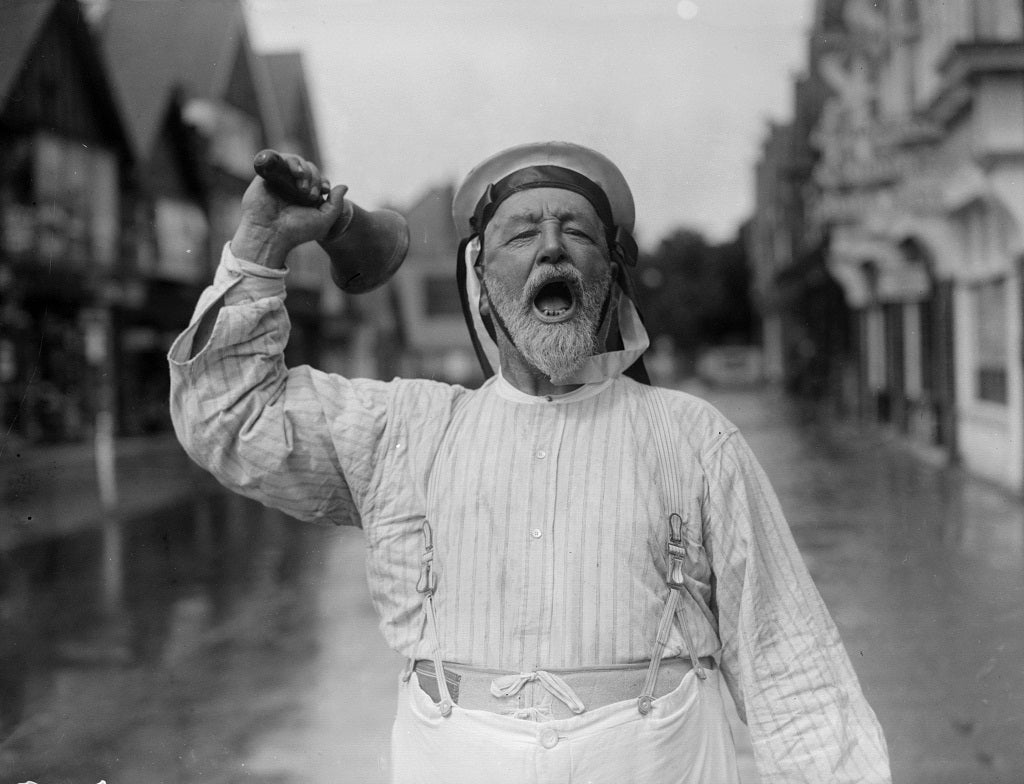The sombre day a language dies
Scots dialect Cromarty is no longer a living tongue - and hearing it in old recordings makes clear just how much we've lost with its passing

Your support helps us to tell the story
From reproductive rights to climate change to Big Tech, The Independent is on the ground when the story is developing. Whether it's investigating the financials of Elon Musk's pro-Trump PAC or producing our latest documentary, 'The A Word', which shines a light on the American women fighting for reproductive rights, we know how important it is to parse out the facts from the messaging.
At such a critical moment in US history, we need reporters on the ground. Your donation allows us to keep sending journalists to speak to both sides of the story.
The Independent is trusted by Americans across the entire political spectrum. And unlike many other quality news outlets, we choose not to lock Americans out of our reporting and analysis with paywalls. We believe quality journalism should be available to everyone, paid for by those who can afford it.
Your support makes all the difference.Earlier this month Bobby Hogg, a man who lived to the ripe old age of 92, died. Hogg was the last native speaker of Cromarty, a dialect of the fisherfolk from a town of the same name in the North East of Scotland.
With his passing went the dialect. It is thought to be the first time the extinction of a Scots language can be pinpointed to an exact moment in time.
The death of a little-known dialect in a remote part of the country may seem insignificant, but what it represents isn’t.
A language is more than a collection of words and grammar used to communicate a message. It’s something that evolves through linguistic erosion and construction; it charts a history of human activity; it holds the key to local knowledge and it helps mould a peoples’ identity. If you’re interested in conservation, then the death of a language should be a sad day.
“The disappearance of a language is like the disappearance of life-giving water sources,” Christopher Moseley writes in The UNESCO Atlas of World’s Languages in Danger, “In a generation, a lake or river can be reduced to a series of water holes, then puddles, after which it may dry up completely.” The last remaining drops of Cromarty have seemingly evaporated.
Fortunately we have an amazing relic of the dialect is the collection of recordings that Janine Donald collated for the Highland Council’s Am Baile project in 2007. Her interviews with Bobby and his younger brother Gordon, who died last year, make for an enlightening listen.
The discussion naturally deals with the local source of income, the sea. A strolyach is an octopus; a kye, a crab; and a heyreen a herring. Moolie, a wonderful Scots word, means darling.
But one of the most fascinating revelations was how speakers referred to something according to its size. “A boy becomes a chiel, right? Then he becomes a chielag. Then he becomes a chielachie,” Bobby explained. “There’s a burd, look! Oh, a burdie. Oh, a burdachie… Ye qualify, ye know, the size of it?” A girl: a dem and a demachie, or a lass, then a lassachie.
The two men made me think of the write Norman Lewis’ delightful, if heartbreaking, book about a Catalonian village where he lived for three summers after WWII. In Voices of the Old Sea, he charts the slow but steady erosion of the village’s identity as tourism begins to invade the Spanish coast.
He described magically how the local fishermen would speak to each other in “blank verse” about the adventures of the day. “Catalan, their workday language, was put aside at such sessions if favour of Castilian, its cadences esteemed by the fisherman as more suited to poetic expression,” Lewis writes. “The men of Farol hoarded their words as their children collected the coloured pebbles on the beach.”
Certain regional languages, such as Manx and Cornish, are being quite successfully revived, but the list of threatened languages is extensive. If they go, so does our connection to the past.
“But what’s, what’s gonna follow us?” Gordon Hogg asked back in 2007. “There’s nothing.”
Join our commenting forum
Join thought-provoking conversations, follow other Independent readers and see their replies
Comments